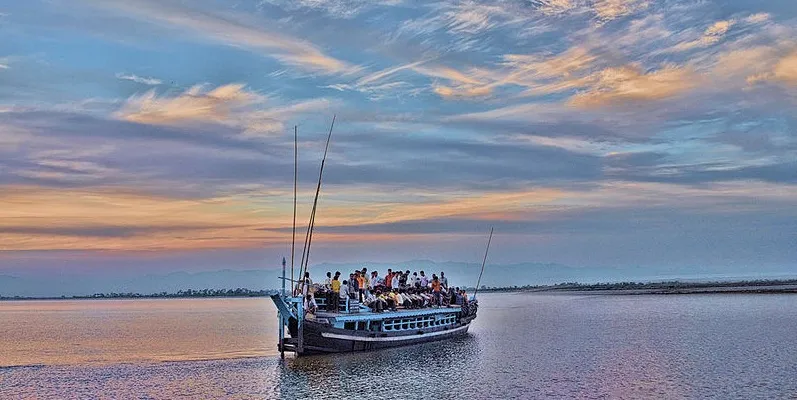In the world's biggest river island lies India's first carbon-neutral district
It's the world's biggest river island and the first such in India to be declared a district. Now plans are afoot to declare it the country's first carbon-neutral district by 2020. It is by no means a mean feat, but ambitious projects, with the help of locals, NGOs, and corporate houses, are getting underway to achieve this.

The roadmap for the project has been developed by IORA Ecological Solutions, an environmental finance, policy, advisory, and project development group. Mitigation through forestry and biodiversity conservation will be the starting points in this carbon-neutral agenda, followed by other interventions over the next three years. Pallav Jha, the District Commissioner of Majuli in an interview with IANS said,
To begin with, we are now collecting data for preparing a carbon audit. Information on electricity consumption, emission levels by different industries, and emissions by agricultural practices like burning of crops. Also, what is the total forested area.
"At the moment, it's the rural emissions, be they agriculture-based practices or burning of fuel, that we have to check. But we have to keep in mind the increase in vehicular pollution in the near future—when Majuli gets connected with the mainland by a national highway, as declared by the central government," Jha told IANS.
After years of poor connectivity, the central government promised a bridge connecting Majuli—Assam Chief Minister Sarbananda Sonowal's constituency—to the mainland and is also thinking about an access-control highway along the Brahmaputra to ease traffic flow. With better connectivity, this ancient seat of Vaishnavite culture, which is already an attraction for tourists, more people and traffic are expected to pour into Majuli. This is good news for tourism and will create more job opportunities for the locals, but its impact on the environment is also being carefully considered.
The connectivity to Majuli should be completed in the next three-four years. Keeping in mind the increase in vehicular pollution and increase in carbon footprint that it will be bring along, we may impose a Green Cess on tourism, the District Commissioner said.
But that is for the future. At the moment, efforts are on to make locals aware of the implications of climate change and nudge them towards adopting changes in their lives. Organic farming, for one, is being encouraged. Development of fisheries is also being encouraged. Launched by the Assam government as Sustainable Action for Climate-Resilient Development in Majuli (SACReD), this project is part of the French Development Agency-assisted Assam Project on Forest and Biodiversity Conservation to combat climate change and reduce greenhouse gas emissions. As part of efforts to check fuel emissions, the District Commissioner said that LPG connections will be given to those who lack these.
Also read: From recycled jersey to carpooling solutions—meet the world’s first carbon-positive cricket team
Over and above that, the District Commissioner said, public participation will be sought to raise 'organic pockets' for wood for fuel so that indiscriminate deforestation can be checked. Plantation drives, in any case, are already underway across the riverine island. In the absence of electricity, most people in Majuli—much like everywhere else in Assam or the rest of India—resort to the use of kerosene lamps. To address this, a 5-10 MW project by the National Hydroelectric Power Corporation (NHPC) will help electrify villages that are now bereft of power. The contribution of solar energy to light up homes in an eco-friendly way has also been taken into account. The government plans to extend this programme to other districts once Majuli succeeds in its aim.
Do you have an interesting story to share? Please write to us at [email protected]. To stay updated with more positive news, please connect with us on Facebook and Twitter.







